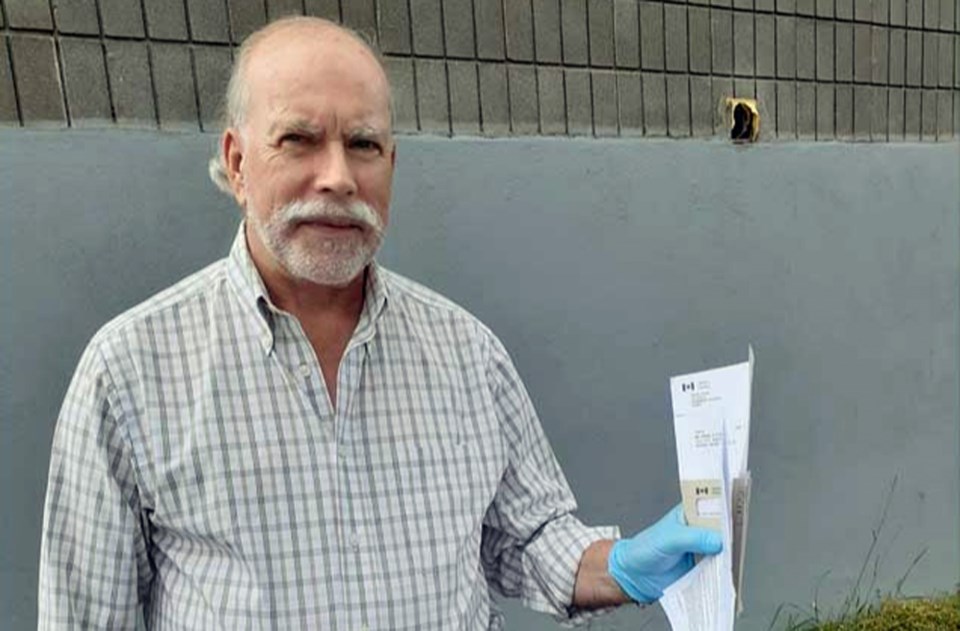When local resident Peter Fletcher became ineligible for the Guaranteed Income Supplement (GIS) last year, he was left $355 shy every month that he counted on to survive his retirement years.
He and about 200,000 other Canadian seniors became ineligible for the GIS after taking advantage of the Canada Emergency Response Benefit (CERB) for caregivers. Fletcher accessed the funds in 2020 when he was looking after his cancer-afflicted and aged landlady.
The situation became so dire for Fletcher that, as a diabetic, he's been forced to ration his insulin and three other medications to make them last.
“I’ve watched Parliament every day for a month hoping for some news,” he said. "After I pay my rent from my CPP cheque, I have $11 left over.”
It’s finally come.
Announced in the Economic and Fiscal Update, the federal government will provide up to $742.4 million for one-time payments. These payments will alleviate the financial hardship for those seniors who qualified and received CERB and CRB in 2020 but who subsequently lost some or all of their GIS or Allowance benefits.
This automatic, one-time payment will support those who saw a loss of GIS or Allowance by compensating them for the full, annualized loss amount. Seniors will not need to take any action to receive the one-time payment. They will automatically receive the payment in the same way they receive their GIS payments.
It’s supposed to come for most everyone on April 19 and if some seniors are in crisis they can access it as early as March.
“I think it’s good, as long as it goes to those who need it,” Fletcher said.
He's needed it for some time.
Along with his medicine rationing, Fletcher has been living off canned and dried goods he stockpiled for a long time. Two weeks ago, he managed to scrape together enough money to buy a bag of carrots.
“I’ve been making carrot soup since then,” Fletcher said.
He couldn't even get a free bus pass because getting the GIS is the prerequisite.
“I’ve stayed home for weeks because I can’t afford the bus fare,” Fletcher said. “It’s just ridiculous.”
The line of credit that he had at the bank with a 7.5 per cent interest rate is a thing of the past because he couldn’t make a payment on it, he added.
He knew he’d have to pay the benefit back when he applied for it but what he didn’t know was that it would affect his annual income, making him ineligible for the GIS the following year.
"When I applied for the CERB there was no indication that I would be giving up the GIS," Fletcher said at the time.
At first, he was told he wouldn’t have to pay interest when it came to paying it back and that wasn’t accurate either.
To ensure that this issue does not reoccur, Canada’s Minister of Seniors, Kamal Khera, introduced Bill C-12 in Parliament last week.
Bill C-12 would amend the Old Age Security Act to exclude any income received under CERB, CRB, the Canada Recovery Caregiving Benefit, the Canada Recovery Sickness Benefit, and the Canada Worker Lockdown Benefit for the purposes of calculating the amount of GIS and Allowance payable beginning in July 2022.
Seniors are the fastest-growing demographic age group in Canada. By 2030, the number of seniors is expected to reach 9.4 million, representing close to one in four of Canada’s population.
Every year, tens of thousands of seniors have their Guaranteed Income Supplement (GIS) increased or decreased to reflect changes in their net income. This design ensures the benefits go to the most vulnerable seniors. As GIS benefits are calculated on the basis of the previous year’s income, any change in income in a given year will result in an adjustment of GIS benefits in the following July to June payment period.
The targeted, one-time payment is proposed to go to an estimated 183,000 GIS recipients and 21,000 Allowance recipients who received pandemic benefits in 2020, and who faced a reduction or loss of GIS benefits in July 2021.
The one-time payment will be calculated to compensate for the loss in benefits. Further details on the calculation and distribution of the proposed one-time payment will be announced shortly.


